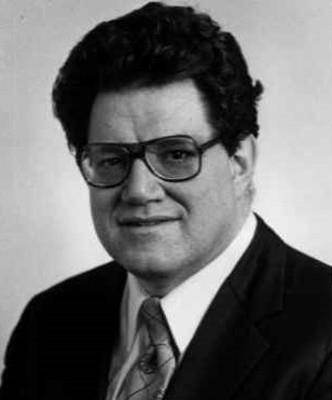With sadness, PARMA remembers composer Philip Koplow. A Professor Emeritus at Northern Kentucky University, where he taught music for 27 years, Philip’s debut PARMA recording, FOR THE PEACE OF CITIES, will be released in June of 2018.
A native of Cleveland, Philip Koplow received degrees from Kent State University and his doctorate from the Cleveland Institute of Music. Koplow’s six years at Kent State University (1964-1970) made a deep and lasting impression on the composer.
From the Liben Music Publishers website: “Many of the devastating events of that era became compositions; a cantata on a child’s murder, a viola sonata on the Martin Luther King assassination (which took place on Koplow’s 25th birthday), a choral work on the Kent State shootings, and a string quartet on the Vietnam war. The composer believes in turning social and personal pain into music as an act of empathy or protest – a humane method of dealing with life cycle events as well as violence and evil.”
A sabbatical from Northern Kentucky University, plus a commission from the Southwest Florida Symphony, allowed for the composition of “FOR THE PEACE OF CITIES” for two violins and orchestra. The work incorporates actual Bosnian folk music, and was offered in sympathy to the victims of the war in former Yugoslavia and in celebration of the peace accords which substantially ended the conflict. The accords were negotiated in Dayton, Ohio, only fifty miles north of Cincinnati.
We asked PARMA artist and composer Paul John Stanbery for his recollections of Philip Koplow — a close friend and collaborator. He writes:
Phil Koplow was a giant of a man.
Mentally and emotionally large, musically large; and when he was your friend, he made you feel large and important, just like him.
Our friendship began when I was asked to conduct a premiere of a work he wrote, in honor of the victims of the Nazi Holocaust. It was to be performed at his home Temple in the suburbs of Cincinnati.
The year was 1995. From there sprang a wonderful friendship which included more premieres and commissions, and lot of “what if” dreaming over one of our famous Chinese lunches. He always had the same thing, “Mongolian Chicken over white rice; extra mushrooms.”
Phil was undaunted in his ability to get people to perform his music. He often reminded me that I had championed his works and performed them more than any other single conductor, and with several different groups. Never easy, I was happy to comply, as they always made my ensembles play better. I used to kid him that he’d never be seen out of the house without an armload of his own scores to hand out, and that if he could convince even a gas station attendant to play his music, he would!
In his life as an academic, he inspired numerous generations of young people as “Composer in Residence” (a title he himself created) at Northern Kentucky University. One sweet memory is the day he came and sat in on one of my own composition classes at NKU in 2015, when I was a substitute prof. He seemed enlivened by the experience, having been away from teaching for about ten years at that point. My kids loved him too.
Phil was instrumental in my own career, as well as being a great friend. He wrote the nomination papers which resulted in my own award of the Post-Corbett Award (2005), for excellence in the arts in the region. Phil himself had been a recipient in years past, and it was Phil who introduced me to Bob Lord at PARMA Recordings, a happy collaboration.
Our lunches continued right up until the end, when he found himself in Hospice care in December of 2017. Prior to that, we would eat and share the latest health challenge in life-both ways, and I always felt loved by him-in a big, giant way.
Phil Koplow was indeed a giant in my life. I miss him dearly, but I know he’s already bugging St. Peter about a possible performance at the Pearly Gates, a brand new Koplow commission.
They’d better have lots of Mongolian Chicken on hand in heaven, enough to feed a giant…
An active composer into his final years, Philip Koplow’s works were played by the National Symphony, the Cincinnati Symphony, Los Angeles Philharmonic, Poland’s Silesian Philharmonic, the Northern Kentucky School of Music, and numerous university and student groups.
Philip is survived by his wife of 48 years, Cordelia Koplow, and his son Morris Koplow.



